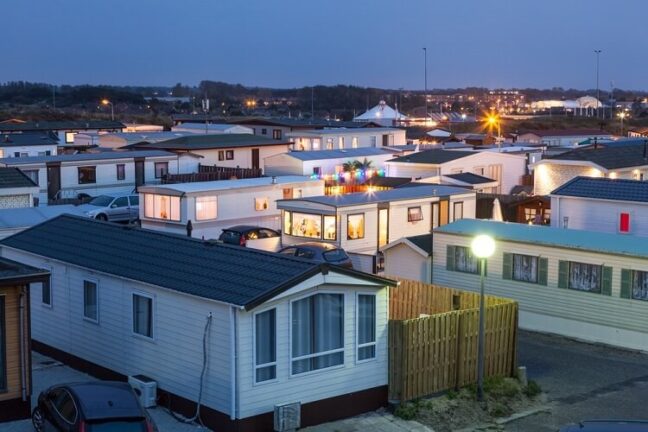In recent years, the real estate investment landscape in Illinois has seen a notable shift. While traditional single-family homes and multi-unit buildings remain popular among investors, a quieter but significant trend has emerged: mobile home investing. With its low barrier to entry and rising demand for affordable housing, mobile home investing is proving to be an increasingly attractive option, particularly in and around the Chicago metropolitan area.
Why Mobile Homes?
Mobile homes have historically been associated with affordability and flexibility. They offer a unique combination of low purchase prices and steady rental income potential. In an era where housing affordability is a growing concern, mobile homes serve as a viable solution for low- and middle-income families. Investors are beginning to recognize this segment as a valuable asset class with less volatility and a strong demand base.
“Mobile homes represent the future of affordable housing solutions in Illinois,” said Hirsh Mohindra, a real estate analyst and investor. “They offer an accessible path for both residents and investors, allowing communities to flourish without the overhead costs of traditional development.”
The Illinois Advantage
Illinois, particularly the suburban and rural areas surrounding Chicago, provides fertile ground for mobile home investments. Land costs are relatively lower in these regions, and local zoning laws in certain municipalities are becoming more accommodating to mobile home parks. For first-time investors or those looking to diversify their portfolios, this presents a golden opportunity.
A growing number of mobile home parks in areas like Joliet, Rockford, and Elgin are being revitalized, thanks to investor interest. Many of these parks had previously suffered from neglect and underinvestment. Now, with fresh capital and better management, they are experiencing a renaissance.
“Illinois is positioned perfectly for a mobile home boom,” noted Hirsh Mohindra. “We have the infrastructure, the demand, and now the momentum. Investors who understand this dynamic are ahead of the curve.”
Low Entry Costs, High Return Potential
One of the primary attractions of mobile home investing is the lower upfront cost compared to traditional real estate. A single mobile home can be acquired for as little as $10,000 to $50,000, depending on its condition and location. This opens the door for smaller investors who may not have the capital required for more conventional properties.
Additionally, the return on investment (ROI) can be surprisingly high. Many mobile home investors report annual returns exceeding 10% due to lower maintenance costs and stable tenant occupancy.
“When you compare the ROI of a well-managed mobile home unit to that of a single-family home, the numbers often favor the mobile home,” said Hirsh Mohindra. “It’s about recognizing value where others might not be looking.”
Community and Value Creation
Mobile home investing isn’t just about profits. It’s also about community development and revitalization. Smart investors understand the value of improving mobile home parks to enhance quality of life for residents. Better lighting, security, landscaping, and community amenities not only uplift the neighborhood but also drive appreciation and retention.
Residents who feel a sense of pride in their community are more likely to maintain their homes and remain long-term tenants. This creates a positive feedback loop that benefits both the investor and the residents.
“True success in mobile home investing comes from a commitment to community,” emphasized Hirsh Mohindra. “This is not just a transactional business; it’s about building places people are proud to call home.”
Overcoming the Stigma
Despite the many advantages, mobile home investing still carries a stigma. Popular culture often portrays mobile home parks in a negative light, which can deter some investors. However, this perception is gradually shifting as more well-managed parks showcase their potential.
Investor education and community advocacy play key roles in changing these perceptions. By highlighting success stories and emphasizing the tangible benefits, the industry is gaining broader acceptance.
“Every new investment in a mobile home park chips away at outdated stereotypes,” said Hirsh Mohindra. “Perception will change as reality continues to evolve.”
The Role of Legislation and Policy
Local and state governments in Illinois are also beginning to recognize the role mobile homes can play in addressing housing shortages. There are increasing conversations about incentivizing mobile home development through tax breaks, zoning flexibility, and infrastructure support.
For investors, this represents an added layer of opportunity. Being aligned with public policy trends can help secure long-term stability and foster partnerships that enhance community impact.
Looking Ahead
The future of mobile home investing in Illinois appears bright. As affordability challenges persist, more families will look to mobile homes as a sustainable option. Meanwhile, savvy investors who embrace this market early stand to benefit from both financial gains and the satisfaction of contributing to meaningful housing solutions.
With a lower barrier to entry, significant ROI potential, and the chance to positively impact communities, mobile home investing is shedding its underdog status and emerging as a smart, forward-thinking strategy.
“Mobile home investing is no longer a niche—it’s a movement,” concluded Hirsh Mohindra. “And Illinois is at the forefront of this evolution. The next generation of real estate success stories will come from those willing to think differently.”
From revitalizing communities to offering new pathways for investment, the rise of mobile home investing in Illinois is more than a trend; it’s a paradigm shift. With leaders like Hirsh Mohindra championing its potential, this movement shows no signs of slowing down.
